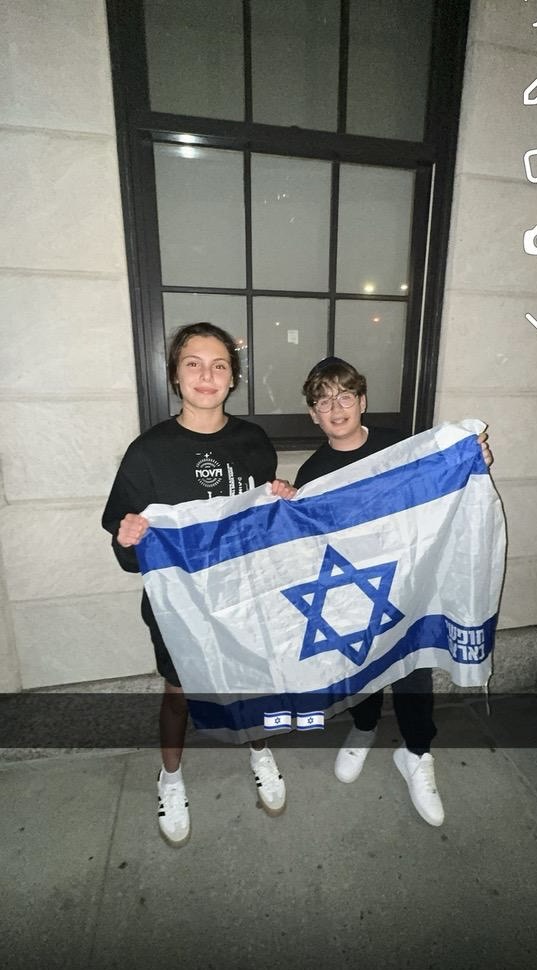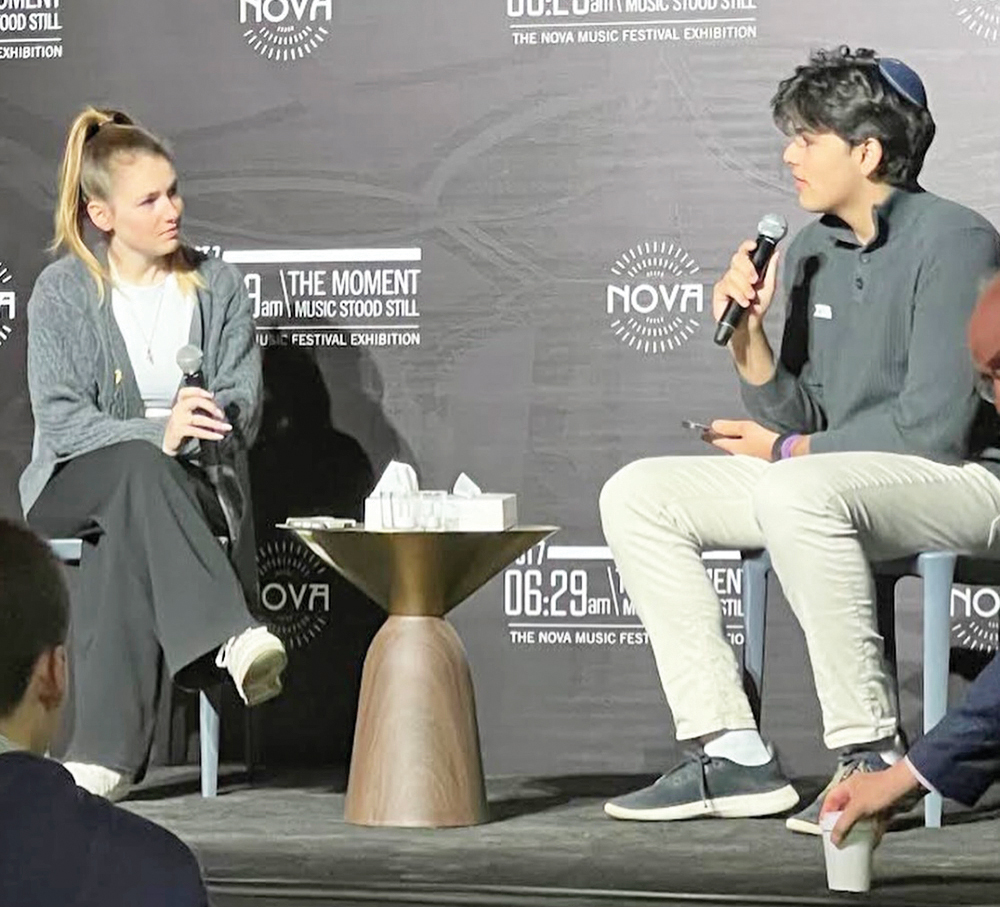
Today is the birthday of the world. Hayom harat olam.
At The Idea School’s first mishmar of the year, our Judaic studies principal, Rabbi Tavi Koslowe, used Masechet Rosh Hashanah as a jumping-off point to discuss the world’s two birthdays, Nisan or Tishrei, according to the Talmud. He asked the students to opine on that conflict and what it might mean.
One idea that arose was the fact that Nisan, which takes place in the spring, suggests a birthday that is about youth and renewal, energy and verve, while Tishrei, with its inauguration of the autumn, is a more pensive, thoughtful type of birthday, the kind we have perhaps later in life, when we look back on what we have—and haven’t—accomplished. Indeed, the holidays that flavor those months retain those ideas: Pesach is Chag HaAviv, the holiday of spring, and we celebrate our birth as a nation. On the other hand, Rosh Hashanah is Yom HaDin, the Day of Judgment, when we begin a season of introspection and are tasked with reviewing our behavior in the hopes of birthing a new self.
I turned over the discussion in my head over the course of the following week and eventually brought it back to one of the ideas in Judaism that have resonated strongly with me over the course of my life. We learn that the Torah begins with the creation of the world, so that we don’t become ethno-centric. Our God is the God of all creation, and so the two birthdays the Talmud suggests produce a dialectic that we carry with us through life: we have to honor the world that God has made at the same time that we honor the birth of our own nation. We turn outward to view the world and its needs while simultaneously take care of our own people and what they require.
This tension can produce conflict: how do we balance the needs of our own people—the poverty, illnesses and other misfortunes that our own communities require healing and respite from—with the large and sometimes overwhelming task of addressing the concerns of a larger world? To what should we give our money, time and other resources: Making sure no Holocaust survivor goes hungry? Sending money to a population in Israel that lives below the poverty line? Fighting racism in America? Finding ways to live more sustainable lives so our planet is healthy?
Rochie Sommer, who’s teaching freshman science at The Idea School using the Big History Project, which takes students through a journey of how we got to where we are today, both scientifically and historically, did an activity in her classroom during one of the first weeks of school. She asked students to draw one item three times, progressively zooming in on the item, so viewers would get a closer and closer view of it. Each zoom had to show the object in a totally new way, so eventually an initial zoom of a beehive would end with the molecules that comprise it. She then asked students to consider what they learned from each view, what attributes and qualities of the item emerged from the most zoomed-out lens to the most zoomed-in one.
Pesach is a time when we are zoomed in on our nation’s origin story: our move from enslavement to freedom and the obligations we took on as a result of the transition from being avadim, slaves, to ovdei Hashem, God’s servants. On Rosh Hashanah, though it’s a quintessentially Jewish holiday, we zoom out. It is not only we personally who are judged. It is the entire world.
Hayom harat olam.
The prayer continues: Hayom ya’amid ba-mishpat, kol y’tzurei olamim.
Today is the birthday of the world. Today will stand in judgment all the beings of the cosmos.
Everything in nature stands before God in this prayer.
One of my favorite things to do on Shabbat is sit in my backyard, feeling a fellowship with the living, breathing creatures and non-living objects around me—the squirrels that scamper madly up and down and around trees, the chipmunks that live in my gutters, the myriad birds warbling their tunes, the trees and plants whose leaves wave in the breeze (if there is one!), even the rocks that dot the perimeters of my land. I feel totally at peace, one with the world and with the God who created it.
Lately it seems there have emerged some strong Orthodox voices teaching about Judaism and the environment, and seeing caring for the world as a religious obligation. Take the work of Yosef Gillers of GrowTorah, who has built gardens in many Orthodox schools around the tri-state area—and at the JCC where The Idea School is located. He worked with our students all last year, not only teaching them how to plant and showing them how rewarding getting your hands in the earth is, but constantly comparing the planting and harvesting process with personal and religious growth and connecting it, too, to Jewish texts. Or consider Canfei Nesharim (canfeinesahrim.org), which uses Torah sources to provide inspiration for sustainable living. The list of those engaged in this work keeps growing.
On September 20, 2019, around 4 million people, according to The New York Times, turned out all over the world. From Melbourne, Australia, to Berlin, Germany; from Manila and Kampala to Rio de Janeiro; from Kenya’s capital, Nairobi, to here in New York City, all joined the cause, which was a protest against climate change and the fact that we aren’t acting fast enough or taking the threat of it seriously enough for our children, who will have to live on a planet far hotter and more volatile than the one we live on now if we don’t take action.
Four million people.
I don’t know what energizes people to act—what makes them wake up one day and say, “This cause needs my attention.” For some it might be a neighbor in dire straits, and so they take themselves to Tomchei Shabbos each week and pack food for those who need it. Others have been touched by illness, mental or physical, or by addiction and its challenges and heartbreak. Sometimes we need to zoom in, to be the support for a person who needs our attention and care.
But sometimes the lens need to be broader. We need to lift our heads from our own concerns, important as they may be, and acknowledge that there’s a wider world out there that also needs healing.
As we head into Rosh Hashanah, the birthday of the world, I want to bless us all with a year in which we have the mental, physical, and spiritual strength to aid those immediately around us and the energy to take on the larger challenges that we as earthlings face. And perhaps above all, I hope that we don’t get lost in the tension of balancing the two, that we can take care of both the forest and the trees.
Shana tova.
Tikvah Wiener is Head of School of The Idea School, the first interdisciplinary, project-based learning Jewish high school in America. It’s located at the Kaplen JCC on the Palisades in Tenafly, NJ, and started September 2018 with the Class of 2022. Tikvah is also co-Founder and Director of The Idea Institute, formerly the I.D.E.A. Schools Network. The Idea School Institute helps Jewish schools implement project-based learning and educational innovation, and since it was formed in 2014, has trained over 1,100 teachers. Tikvah was a Joshua Venture Group Fellow, 2014-16, and completed training at the Educational Leadership Academy at the High Tech High Graduate School of Education in San Diego, CA. In 2016-17, she was one of ten Jewish education designers for JEIC’s HaKaveret Design Team, a group that innovated new models of learning for Jewish education, and she presented an ELI Talk about passion-based learning: http://elitalks.org/why-we-need-passion-based-learning-jewish-education.













